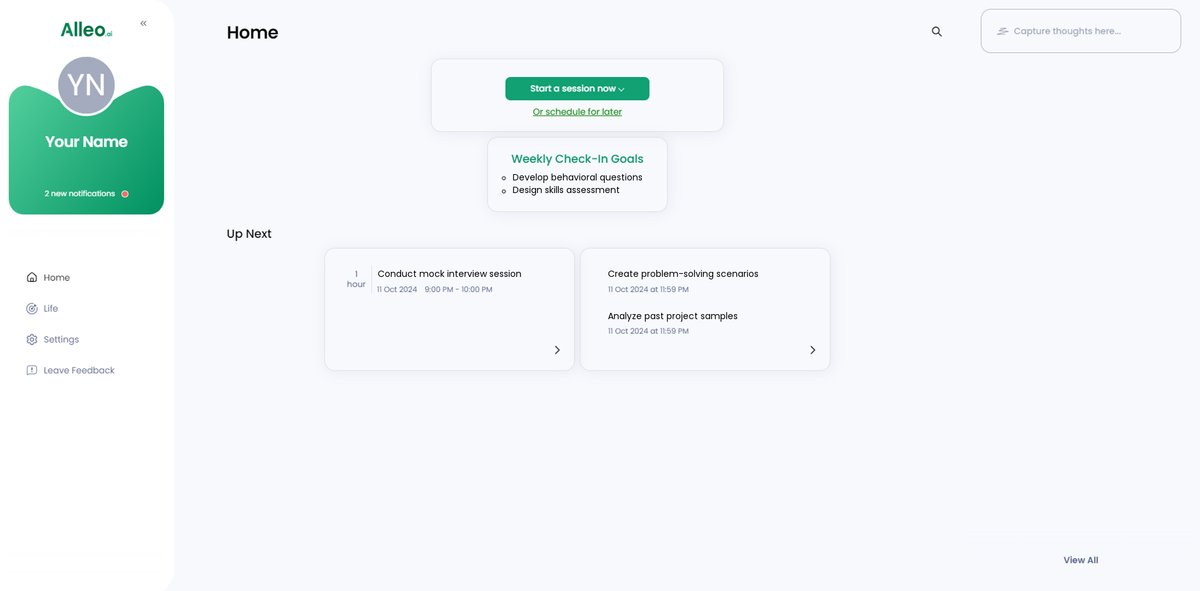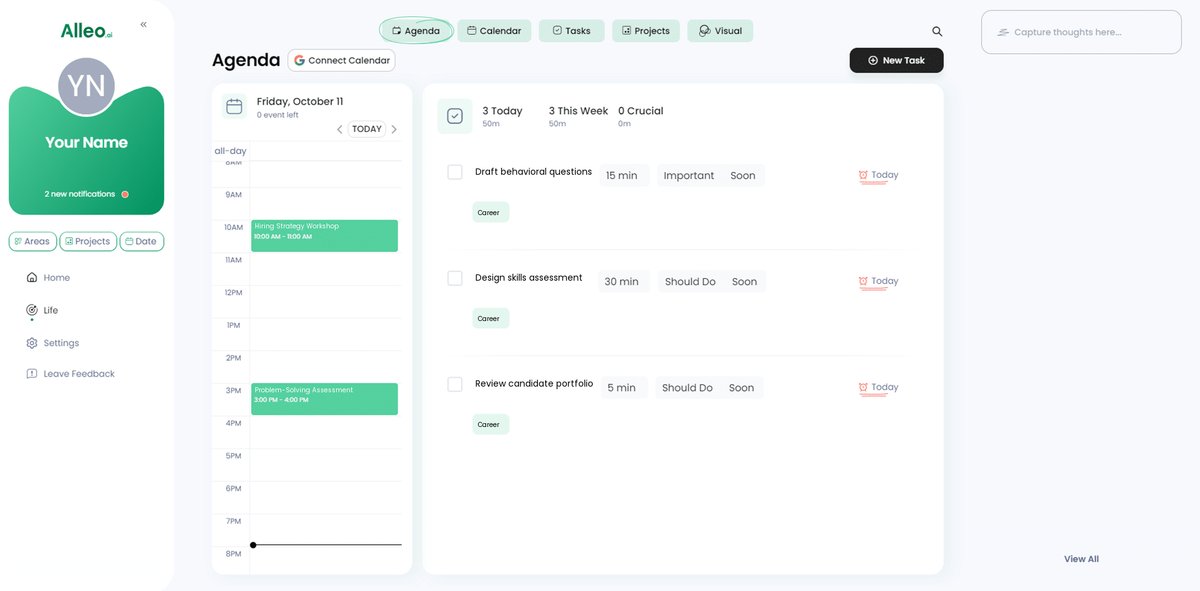How to Assess Problem-Solving Abilities: 4 Proven Interview Methods for Better Hiring
How do you ensure you’re hiring individuals who can solve complex problems under pressure?
As a life coach, I’ve helped many professionals navigate these challenges. In my experience working with clients, assessing problem-solving skills in interviews is crucial for hiring managers. The ability to accurately evaluate candidates’ analytical and critical thinking abilities during the recruitment process can make a significant difference.
In this blog, we’ll explore specific strategies to evaluate problem-solving abilities. We’ll cover structured behavioral questions for critical thinking, job-specific skills assessments, live coding sessions for technical problem-solving, and evaluating past projects to gauge decision-making and creative problem-solving skills.
Let’s dive in to these interview techniques for problem-solving.

The Critical Need for Assessing Problem-Solving Skills
Hiring for problem-solving skills is no small task. Many clients initially struggle with identifying the right techniques to gauge these abilities, especially when it comes to assessing problem-solving skills in interviews.
This often leads to hiring talented individuals who falter when real-world challenges arise, highlighting the importance of effective interview techniques for problem-solving.
The consequences are significant. Poor hiring decisions can lead to project delays, increased costs, and team discord.
For startups, this can be particularly costly.
Many startups fail to pinpoint effective metrics for assessment. Traditional interviews often overlook problem-solving skills, missing opportunities for situational judgment tests and analytical skills assessment.
Instead, practical and structured evaluations are essential.
In my experience, using a structured approach can transform your hiring process. Incorporate behavioral questions for critical thinking, live coding sessions, and review past projects to get a comprehensive understanding.
By refining your techniques, such as using case study interviews and logic puzzle interview questions, you can build a resilient team. This not only improves performance but fosters innovation and growth within your company.

Roadmap to Assessing Problem-Solving Abilities in Interviews
Overcoming this challenge of assessing problem-solving skills in interviews requires a few key steps. Here are the main areas to focus on to make progress:
- Use Structured Behavioral Interview Questions: Develop questions targeting specific problem-solving scenarios relevant to your industry, incorporating behavioral questions for critical thinking.
- Implement Job-Specific Skills Assessments: Create simulations that reflect real-world tasks candidates will face, such as situational judgment tests or technical problem-solving questions.
- Conduct Live Coding or Problem-Solving Sessions: Set up sessions where candidates solve problems in real-time, using creative problem-solving exercises or logic puzzle interview questions.
- Evaluate Past Projects and Work Samples: Ask candidates to present a portfolio of past projects for review, focusing on their analytical skills assessment and decision-making evaluation methods.
Let’s dive into these interview techniques for problem-solving!
1: Use structured behavioral interview questions
Using structured behavioral interview questions is crucial for assessing problem-solving skills in interviews effectively.
Actionable Steps:
- Develop a set of behavioral questions for problem-solving that target specific scenarios relevant to your industry.
- Use the STAR method (Situation, Task, Action, Result) to evaluate responses and measure candidates’ ability to outline their problem-solving process.
- Include questions that assess creativity and adaptability, such as “How would you approach a project with ambiguous requirements?” to evaluate creative problem-solving.
Explanation: Structured behavioral questions help focus on real-world problem-solving skills. They allow you to see how candidates have handled similar situations in the past, serving as an effective interview technique for problem-solving assessment.
According to Index.dev, evaluating past behavior is a reliable indicator of future performance. This approach ensures that you select candidates who can think critically and adapt to new challenges, aligning with industry trends in analytical skills assessment.
Key benefits of structured behavioral questions include:
- Provides insights into real-world problem-solving abilities
- Allows for consistent comparison between candidates
- Reveals candidates’ thought processes and decision-making skills
By incorporating these steps, you can effectively gauge how candidates solve problems and make decisions, complementing other methods like case study interviews and situational judgment tests.

2: Implement job-specific skills assessments
Implementing job-specific skills assessments is crucial for assessing problem-solving skills in interviews and evaluating candidates’ ability to handle real-world tasks.
Actionable Steps:
- Develop simulations that mimic actual job scenarios candidates will face. For instance, create coding challenges that reflect typical bug fixes or feature implementations, serving as technical problem-solving questions.
- Use standardized tests to objectively measure candidates’ skills. Assess their performance against a benchmark to ensure consistency, effectively evaluating analytical skills.
- Incorporate situational judgment tests to evaluate decision-making skills. Present scenarios with multiple solutions and ask candidates to choose the best one, serving as behavioral questions for critical thinking.
Explanation: These steps help you measure candidates’ practical abilities and ensure they can handle job-specific challenges, including problem-solving skills in interviews.
According to Index.dev, simulations and standardized tests are reliable methods for evaluating problem-solving skills. They provide a clear picture of how candidates will perform in your company.
By implementing these assessments, including interview techniques for problem-solving, you can make more informed hiring decisions. This will ultimately lead to a more capable and efficient team.

3: Conduct live coding or problem-solving sessions
Conducting live coding or problem-solving sessions is vital for assessing candidates’ real-time problem-solving abilities in interviews.
Actionable Steps:
- Set up live coding sessions where candidates solve problems in real-time. Evaluate their coding efficiency and problem-solving approach during these sessions, using technical problem-solving questions.
- Include pair programming exercises to assess collaboration skills. Pair candidates with a current team member to solve a complex problem together, serving as a creative problem-solving exercise.
- Use technical discussions to understand candidates’ thought processes. Gauge their ability to articulate their approach and rationale during these discussions, incorporating situational judgment tests.
Explanation: Live coding and problem-solving sessions offer a practical way to observe how candidates handle real-world tasks and collaborate with others, serving as effective interview techniques for problem-solving.
According to Index.dev, these sessions provide a clear picture of candidates’ technical and interpersonal skills.
This approach helps ensure you’re selecting individuals who can perform effectively under pressure and work well within your team, aiding in the analytical skills assessment.
When conducting live coding sessions to assess problem-solving skills in interviews, focus on these key aspects:
- Problem-solving approach and logical thinking, similar to logic puzzle interview questions
- Code quality and adherence to best practices
- Communication skills and ability to explain thought processes, akin to behavioral questions for critical thinking
This hands-on evaluation method will strengthen your hiring process and help you build a proficient team.

4: Evaluate past projects and work samples
Evaluating past projects and work samples is crucial for assessing problem-solving skills in interviews and understanding a candidate’s practical problem-solving abilities.
Actionable Steps:
- Request candidates to present a portfolio of past projects. Review their contributions to platforms like GitHub or case studies for technical problem-solving questions.
- Conduct a code review session on a sample of their previous work. Assess code quality, adherence to best practices, and problem-solving techniques as part of the analytical skills assessment.
- Ask candidates to explain their problem-solving approach in past projects. Have them describe how they identified and resolved a major issue, incorporating behavioral questions for critical thinking.
Explanation: These steps provide insights into a candidate’s real-world problem-solving abilities. By examining past work, you can gauge their technical skills and practical experience in decision-making evaluation methods.
According to Index.dev, reviewing past projects is a reliable method to predict future performance. This ensures you select candidates who can handle the challenges specific to your industry, similar to situational judgment tests.
When evaluating past projects, look for these qualities:
- Innovative solutions to complex problems, demonstrating creative problem-solving exercises
- Ability to work within constraints and deadlines
- Collaboration and teamwork skills demonstrated in group projects
By incorporating these evaluations, you can make more informed hiring decisions and build a skilled team through effective interview techniques for problem-solving.

Partner with Alleo for Better Hiring Decisions
We’ve explored how to assess problem-solving abilities during job interviews. But did you know you can work directly with Alleo to streamline this process of assessing problem-solving skills in interviews?
Set up an account and create a personalized plan with Alleo’s AI coach. The coach will guide you through developing interview techniques for problem-solving and implementing effective behavioral questions for critical thinking.
You’ll receive tailored coaching sessions, progress follow-ups, and accountability via text and push notifications. Our approach covers various methods, from case study interviews to situational judgment tests, ensuring a comprehensive analytical skills assessment.
Ready to get started for free? Let me show you how to enhance your decision-making evaluation methods and creative problem-solving exercises!
Step 1: Log in or Create an Account
To begin improving your hiring process with Alleo’s AI coach, Log in to your account or create a new one to access personalized guidance on developing effective interview techniques for assessing problem-solving skills.

Step 2: Choose “Building Better Habits and Routines”
Click on “Building Better Habits and Routines” to focus on developing consistent practices that will enhance your problem-solving skills and interview techniques, ultimately improving your ability to identify top talent during the hiring process.

Step 3: Select “Career” as Your Focus Area
Choose “Career” as your focus area to align with your goal of improving hiring practices and assessing problem-solving skills in candidates, allowing the AI coach to provide tailored strategies for enhancing your recruitment process.

Step 4: Starting a coaching session
Begin your journey with Alleo by scheduling an initial intake session, where you’ll work with our AI coach to create a personalized plan for improving your interview techniques and problem-solving assessments.

Step 5: Viewing and managing goals after the session
After your coaching session on improving hiring techniques, check the Alleo app’s home page to view and manage the problem-solving assessment goals you discussed, allowing you to track your progress in implementing these new interview strategies.

Step 6: Adding events to your calendar or app
Use the calendar and task features in the Alleo app to schedule interview sessions and track your progress in implementing new problem-solving assessment techniques, helping you stay organized and accountable throughout your hiring process improvement journey.

Bringing It All Together: Your Path to Better Hiring
We’ve covered various strategies for assessing problem-solving skills during job interviews. Focus on structured behavioral questions for critical thinking, job-specific skills assessments, live coding sessions, and reviewing past projects to evaluate analytical skills.
By implementing these interview techniques for problem-solving, you will improve your hiring process. You’ll ensure you’re bringing in individuals who can tackle real-world challenges effectively through situational judgment tests and technical problem-solving questions.
Remember, refining your interview process is an investment in your team’s future success. Incorporating case study interviews and logic puzzle interview questions can enhance your decision-making evaluation methods.
Why not give Alleo a try? Our AI coach can guide you through developing these interview techniques for assessing problem-solving skills in interviews.
Start your journey today and see the difference it can make in your creative problem-solving exercises and cognitive ability tests for job candidates.